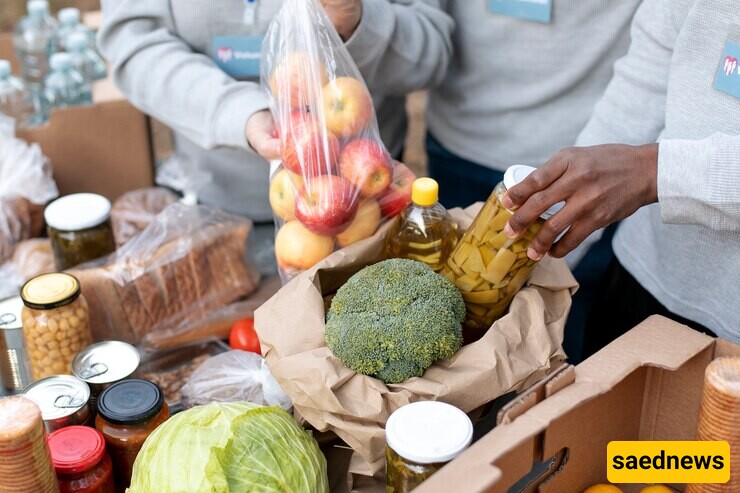SAEDNEWS: Food security, the reliable access to sufficient and nutritious food, is under threat worldwide. Climate change, population growth, and geopolitical conflicts are worsening the problem, making immediate, coordinated action crucial.

According to SAEDNEWS: food security ensures that all individuals have consistent access to adequate, nutritious food for an active and healthy life. While it seems like a basic right, achieving this goal is becoming increasingly difficult in many parts of the world. Factors such as climate change, urbanization, economic disparity, and geopolitical instability are straining global food systems, pushing millions into hunger.

One of the most significant threats to food security is climate change. Rising temperatures, erratic weather patterns, and increased frequency of extreme events such as floods and droughts disrupt agricultural production.
For example, prolonged droughts in sub-Saharan Africa have decimated crops, leaving millions reliant on food aid. Similarly, unpredictable rainfall in Southeast Asia has reduced rice yields, a staple for billions. As arable land becomes less productive, food prices rise, making basic staples unaffordable for many.
The global population, expected to reach nearly 10 billion by 2050, presents a daunting challenge for food supply chains. Rapid urbanization compounds this issue, as more people migrate to cities, where food production is limited, increasing reliance on rural agricultural outputs.
Urban sprawl also reduces available farmland, creating a paradox where demand rises while resources dwindle. Without innovative solutions, feeding the world’s growing population will become increasingly difficult.

Wars and political instability severely impact food security. Conflict zones often see agricultural systems collapse, transportation networks disrupted, and markets destroyed. For example, the war in Ukraine, a major global grain supplier, has had cascading effects on food availability and prices worldwide.
Refugee crises stemming from conflicts also put immense pressure on neighboring countries’ food systems, leading to shortages and humanitarian crises.
While global food production is sufficient to feed the population, unequal distribution remains a significant hurdle. Economic disparities mean that while some regions face food waste and overconsumption, others grapple with chronic hunger.
Low-income countries, reliant on food imports, are particularly vulnerable to global price fluctuations, exacerbating inequality. Even within affluent nations, food deserts—areas with limited access to fresh, affordable food—highlight systemic issues in distribution.
Advances in technology offer hope in tackling food security challenges. Precision agriculture, which uses data and technology to optimize farming practices, can increase yields and reduce waste. Innovations in biotechnology, such as drought-resistant crops and lab-grown meat, have the potential to revolutionize food systems.
Digital platforms are also enhancing food supply chains, improving efficiency and reducing losses from farm to table. However, access to these technologies remains uneven, limiting their impact in regions that need them most.
Sustainability is central to achieving long-term food security. Practices like regenerative agriculture, which restores soil health, and agroforestry, which integrates trees into farming, can help mitigate climate impacts while boosting yields.
Reducing food waste is another critical component. Approximately one-third of all food produced globally is wasted, representing a loss of resources and a missed opportunity to address hunger. Governments, businesses, and individuals must collaborate to reduce this waste through better storage, distribution, and consumption practices.
Addressing food security requires global collaboration. Organizations like the United Nations’ World Food Programme (WFP) and Food and Agriculture Organization (FAO) work tirelessly to provide aid and develop sustainable solutions.
Policy changes, such as subsidies for sustainable farming, investment in rural infrastructure, and support for smallholder farmers, can strengthen food systems. International trade agreements must also prioritize equitable food access while reducing export restrictions during crises.
Food security is integral to global stability, health, and prosperity. Addressing its challenges requires collective action from governments, businesses, and individuals. By embracing sustainable practices, advancing technology, and fostering international cooperation, we can ensure a future where everyone has access to the nourishment they need.

